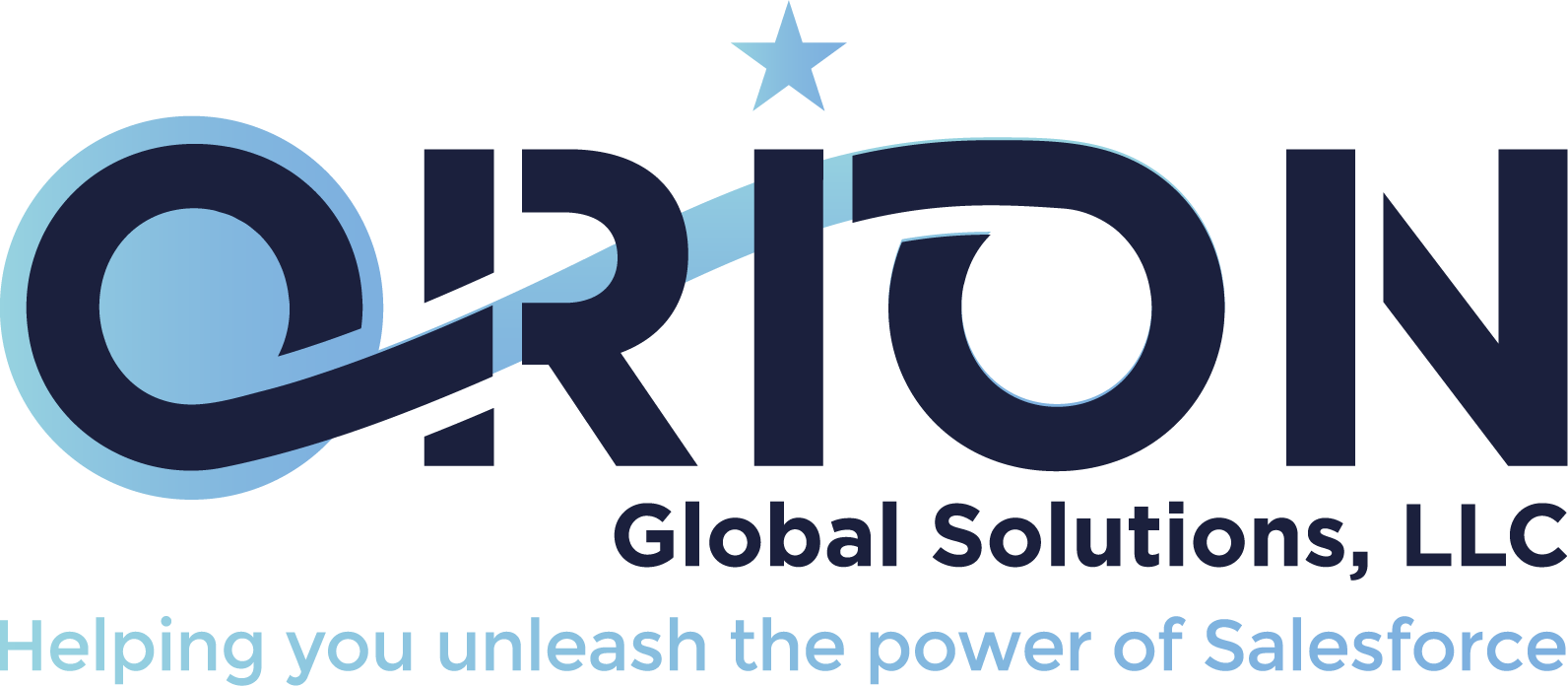Salesforce + ERP: Creating a Unified System
Many enterprises rely on Salesforce for customer engagement and ERP systems for operations and finance. However, these platforms often operate in silos, resulting in fragmented data, disconnected teams, and missed opportunities.
At Orion, we see these challenges every day. Salesforce captures every customer interaction, and ERP powers execution and scale, but unless they are tightly integrated, companies are left with gaps that limit growth. When these systems are designed to work together, they create a unified ecosystem where strategy, execution, and customer experience all move in sync.
The Case for Integration
Disconnected systems create duplicated data, manual processes, and reporting blind spots. Customers feel the impact when the sales teams promise what operations or finance cannot deliver.
By contrast, well-integrated organizations operate from a single source of truth for customers, orders, and financials. Quote-to-cash accelerates, compliance strengthens, and leaders gain real-time visibility for smarter decisions. Teams respond faster, and customers enjoy a smoother experience.
Orion’s Blueprint for Salesforce + ERP Integration
Our approach puts people and outcomes first, supported by the right technology layers. To deliver impact, organizations should focus on:
Customer at the Center – Salesforce serves as the engagement hub, providing a 360° customer view.
ERP as the Backbone – ERP manages financials, supply chain, HR, and inventory to ensure operational stability.
Integration Layer – Middleware, APIs, or MuleSoft ensure secure, seamless data flow between platforms.
Analytics Layer – Unified data enables AI-driven insights, accurate forecasting, and confident decisions.
Change Management – Adoption depends on leadership support, training, and strong communication.
Case in Point: DentalXChange
When DentalXChange, a leader in dental payments, faced the challenge of modernizing opaque legacy infrastructure, they turned to Orion. Their systems were a “black box” that hampered sales, billing, and reporting across the company.
We reverse-engineered the legacy environment, implemented Salesforce Sales Cloud and Service Cloud, and integrated ERP processes to unlock transparency. This resulted in:
Streamlined billing and product launches
Real-time reporting for strategic decision-making
A cultural shift toward digital transformation
Within weeks, executives and teams experienced the impact, from faster decision-making to improved collaboration. Over time, those early wins compounded into lasting business value.
As CEO Paul Kaiser put it: “Within two years, we reached a break-even point. But after that, it’s all upside. With Salesforce as a scalable platform, we can stack value over time and create more efficiencies.”
This project demonstrates how Orion approaches integration: not just stitching systems together but rethinking processes and enabling growth. Read full case study.
Turning Challenges into Opportunities
Even the strongest strategies can hit roadblocks, but with the right partner, those challenges become opportunities to improve and grow. At Orion, we’ve seen that success isn’t just about avoiding pitfalls; it’s about anticipating them together, learning from experience, and staying aligned every step of the way.
Here are four areas where a strategic partner delivers value and guidance into:
Over-customization: Too much customization can create complexity and technical debt that slows you down later. Instead, we help organizations lean on standard connectors and APIs, designing scalability, flexibility, and future growth in mind.
Governance and security: We believe that governance is about trust. Setting up strong policies early for data quality, API usage, and access controls gives your teams the confidence to innovate safely.
Change management: We encourage leaders to share the “why,” celebrate wins, and provide hands-on training, so adoption feels empowering, not overwhelming.
Ownership: When accountability isn’t clear, issues tend to linger or get lost in the shuffle. We help teams define clear ownership across IT and business, ensuring priorities stay aligned and progress stays visible.
The Future: AI and Agentic Workflows
AI is redefining what integration means. We’re moving from systems that simply share data to ecosystems that take action. The next frontier is agentic workflows, where intelligent agents surface insights, execute tasks, anticipate needs, and continuously learn from outcomes.
AI agents can detect a customer’s risk of churn, automatically initiate a service case, draft a personalized offer, and alert the account team, all before the issue escalates. Another AI agent can monitor inventory levels across systems, generate a purchase order, and route it for approval in seconds. This is not theoretical; it’s happening now.
At Orion, we see this as the evolution from automation to autonomy. With Salesforce’s Agentforce and other AI ecosystems, businesses can empower digital agents to work alongside humans, offloading repetitive tasks, augmenting decision-making, and keeping processes flowing seamlessly between departments.
This results in an organization that moves faster, smarter, and stays deeply connected to its customers. As AI agents take on more of the orchestration, people can focus on what truly drives value: creativity, strategy, and relationships.
At Orion, we’re helping our clients design this future today.

